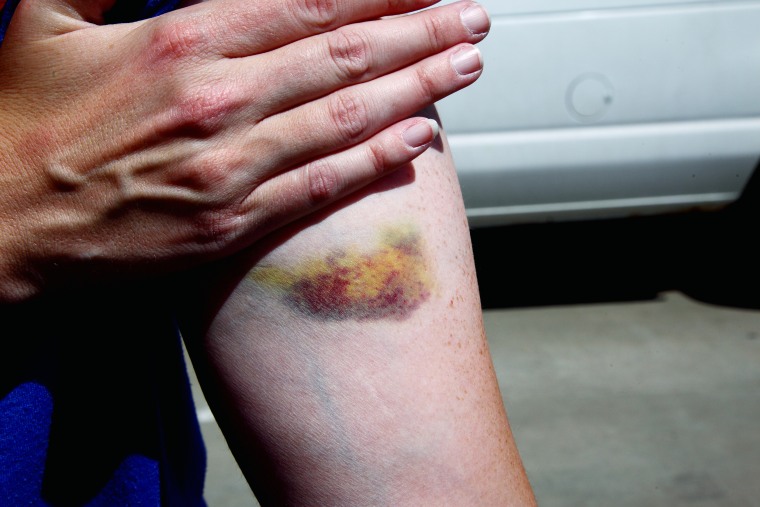Most bruises happen when you sustain an injury that fails to break the skin, but crushes the small blood vessels underneath. Blood then leaks and becomes trapped under the surface, leaving the telltale mark.
How does toothpaste get rid of bruises?
There’s little evidence it does. Search online and you’ll find this tip listed as a “hack” for helping bruises disappear, which may be related to other advice recommending peppermint oil for the same purpose. But dermatologists say peppermint oil could irritate the skin, and toothpaste may have even more potentially skin-irritating ingredients. If you really want to put something soothing on the bruised skin, you may be better off trying aloe vera, though it won't get rid of a bruise.
How long do bruises take to heal?
Most bruises will heal within a week.
How to get rid of bruises overnight
Unless you put make-up or concealer on the bruise to cover it up, there isn’t much that can be done. Putting ice on a bruise can help minimize swelling.
What is easy bruising a sign of?
"Easy bruising" refers to bruising that appears without an injury, or bruising from minor trauma that wouldn't have caused bruising in the past.
Possible causes of easy bruising include taking blood thinners and steroids. The effects of chemotherapy can also lead to easy bruising. Aging is another factor, because blood vessels become more fragile as people get older.
Easy bruising might be a sign that a person isn't getting enough vitamin K, found in leafy green vegetables, broccoli, and Brussels sprouts, in the diet. In rare cases, easy bruising can be a sign of blood, bone marrow or lymph node cancers. Liver disease could also be a factor.
What if a bruise doesn't go away?
See a doctor if you have a bruise that lasts longer than two weeks without changing. It may not be a bruise at all or it may be caused by an underlying problem. Tell your physician if you have recurrent bruises without any clear causes.
A bruise accompanied by significant pain and swelling also warrants medical attention. That could represent a larger bleed under the skin, especially if you’ve had a significant fall or injury.
FOLLOW NBC HEALTH ON TWITTER & FACEBOOK
